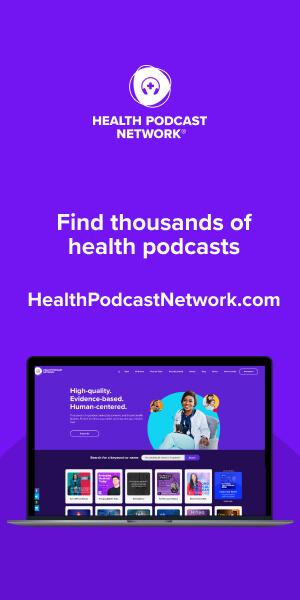One-on-One with Jon Pearce, CEO, Zipnosis
During this year’s CONVENE conference, at the University of Minnesota’s Carlson School of Management, Demi Radeva, one of Digital Health Today’s global ambassadors, had the chance to sit down one-on-one with Jon Pearce, CEO of Zipnosis. Zipnosis, Inc. operates a virtual health care platform that connects patients and clinicians through phone and video interviews. It also offers a ZipTicket, a healthcare boarding pass that provides patients with access to clinics for in-person assessments or lab tests. The company was founded in 2008 and is based in Minneapolis, Minnesota, however, it has gained national recognition for its services. Read on to learn more about Jon’s perspectives on the future of digital health and re-humanizing technology in healthcare.
Q1: In your opinion, what is the next digital technology that will change the landscape of healthcare? Why?
Jon: I believe it will be clinical grade optical recognition. Whether it is, or isn’t embedded within a smartphone, it will be very powerful. There is so much that can be done through visual interpretation. Today, you have to go into a hospital, or into an imaging facility in order to get high quality imaging done and analyzed. However, once we can unlock the potential of this type of technology in a clinical setting, it will be industry changing.
Q2: Do you think digital technology is damaging to our health?
Jon: Yes, there is a correlation between mental illness and social media usage. However, I think there is a lot of promise in digital technologies. Obviously, I am making a bet on it! The hope is not to allow technology to deliver a cold experience and what I mean by that is, so much of the experience in healthcare today isn’t about value. Rather, it is being seen as just another process, an encumbrance. I hope that technology can actually bring patients, back to the center of the care experience. For example, if we look at the way hospitals are designed today, they are all about reducing foot traffic for doctors and nurses, not about a great patient experience. So I hope that we can use digital technologies to help us re-humanize the process and digital patient experience.
Q3: What does re-humanizing mean?
Jon: It’s less about talking directly to a human when receiving care, rather, it’s about the experience – feeling valued, seen, and heard. I think even AI based services can give you the sense of being valued, seen, and heard. Of course, if you are really sick, and you’ve just received a life-changing diagnosis – cancer, HIV – having a hug, or someone’s presence and support, cannot be replaced.
Q4: What role does digital health play when it comes to providing the best medical care today?
Jon: We can take home health as an example. Home Health is huge – aging at home is a real need and now, we can use digital health technology to make it easier and more effective to meet that patient preference.
On the other hand, I don’t think that digital health technology is developed well-enough yet to help with emergency department diversion. But, I also think that the more real need and short-term application is to use digital health technology in order to help frequent users of the health system to navigate to more appropriate sites of care, as well as, make more informed decisions about their health status to, ultimately, help reduce overutilization of already strained medical resources.
Q5: At Zipnosis, why do you believe the Digital Front Door™ is important when it comes to getting quality care?
Jon: To me, digital is synonymous with convenient. That goes back to “My life is busy.” I [as a patient and digital consumer] have seen and experienced standards for non-healthcare services from a digital standpoint, that have influenced my expectations for what this type of service should feel and look like. For example – online banking, event ticket purchasing, etc. If we [healthcare innovators], are not intentional about our digital front door, the whole experience falls apart.
Additionally, as we move into a more modern version of healthcare, I, as a consumer, have more choice and greater say as to where I decide to spend my dollars. However, we are not well conditioned, and often don’t educate ourselves, on how to make those type of decisions or even where to get started.
So I think, making it clear – here is where you should start “Open this door first and we can help you get to the next” – that is central to the whole patient experience. That is why companies like Patients Like Me are so successful, because patients are able to get advice from someone who has navigated a similar diagnosis or medical situation and get a sample on how to approach it.
Lightning Round
1. What is a saying, quote or phrase that motivates you?
“If you are not going to compete, I will dominate you.” – Michael Jordan
2. What advice do you have for others working to innovate and healthcare?
Firstly, know thyself! This is the most powerful tool you have as an entrepreneur. Know what motivates you, what you are good at, what you like to do and not do… What do you struggle with? Ultimately, the company you build, the people you hire, all those will be artifacts you leave behind and they will be a reflection of who you are.
3. What book do you recommend to our listeners?
The Social Transformation of American Medicine: The Rise of a Sovereign Profession and the Making of a Vast Industry by Paul Starr
4. What is the tech that makes yout life better and easier and keeps you healthy?
Garmin watch – I train a lot, and it’s just interesting to track my metrics and see all the patterns. I get insights into when I’m tired, or energized, or sad, etc. Additionally, I like the fact that it’s not a Smart Watch – and that there isn’t a bunch of applications bugging me.
5. If I give you a check for 5 million where would you invest it and what health technology would invest today?
I would invest in genomics. I think there are really strong clinical applications in the near-term. Getting to scale would be difficult, but once it happens, it’ll be huge. A close second would be aging-technology that can help us age better.





